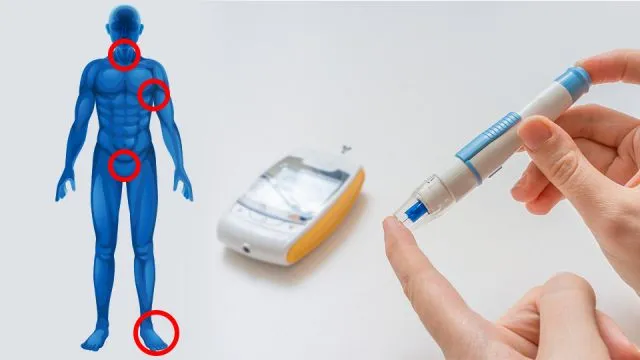
- Share on Facebook236
- Share on Pinterest
- Share on Twitter
Diabetes is one of the most devastating medical conditions a person can have. The metabolic disorder puts you at greater risk for cardiovascular disease, dementia, and amputations. Yet, diabetes is also one of the most preventable diseases out there. Simple dietary and lifestyle changes can significantly lower your risk of developing a condition that is the seventh leading killer in America.
Prediabetes is rampant in America — are you at risk too?
In fact, type 2 diabetes is emerging as a major health crisis in both the United States and across the globe. For example, more than 84 million Americans have prediabetes, a condition that puts them at much greater risk for developing a full-blown case of adult-onset diabetes.
Increasingly, young adults, teens, and even children are being diagnosed with prediabetes. According to one study, there’s been a 30-fold increase in rates of prediabetes in youth over the last 20 years. Paradoxically, the incidences have been rising so dramatically, but the condition has become so commonplace that few people seem alarmed anymore. No wonder, health officials refer to prediabetes as the “silent epidemic.”
There’s another reason the term “silent” is used in relation to prediabetes. The symptoms of the condition are sometimes subtle and can often go unnoticed. Indeed, experts say that only 10 percent of people with prediabetes know they have it.
With that in mind, what are some of the warning signs you need to be aware of so that you can protect yourself and your family members? And just as importantly, what steps can you take to reverse prediabetes if you or someone you love shows signs of it? Here are some of the warning signs of both prediabetes and diabetes that you need to know about.
What is prediabetes?
Prediabetes is a condition where blood glucose levels are higher than normal for a prolonged time, but not quite high enough to warrant a diagnosis of full-blown diabetes. Therefore, prediabetes is a sign that your metabolic system is in the process of becoming impaired (usually by poor dietary and lifestyle choices). But the good news is that any problems are far more reversible at this stage.
Here are five signs of prediabetes you need to pay attention to:
1. Darkened skin
If the skin on your neck, groin, armpits, knees, elbows or knuckles is darker than normal, then it could be a symptom of something called acanthosis nigricans, which is a sign that your insulin resistance is increasing. Essentially, this is an indication that the hormone insulin is becoming less efficient in regulating blood glucose levels.
2. Disrupted sleep
Researchers have found a correlation between sleep deprivation and prediabetes. According to one study, people who got fewer than 5 hours sleep per night were almost 70 percent more likely to develop type 2 diabetes within two years. Scientists speculate that hormonal and metabolic factors related to prediabetes may disrupt the normal sleep/wake cycle.
3. Polycystic ovary syndrome
This is a condition characterized by irregular menstrual periods. Other symptoms of this condition include acne and excessive hair growth. The precise causes of polycystic ovary syndrome are unknown, but doctors believe hormonal fluctuations interfere with insulin sensitivity.
4. Gout
Gout is a painful condition, which results from the buildup of uric acid in the joints and extremities. Researchers have found that high levels of uric acid (and the inflammation associated with gout) are a consequence of the same kind of metabolic impairments that are implicated in prediabetes. If you experience severe pain, swelling, and stiffness in your joints (but particularly in your feet) then it could be a sign of gout, which could well be an indication that you should be screened for prediabetes too.
5. Fatigue
If you are constantly feeling tired for no apparent reason, then it could be a sign of insulin resistance. This occurs when the hormone insulin becomes less efficient in getting the glucose out of your bloodstream and into your cells (where it is used as the body’s main source of energy).
The signs of diabetes are both more obvious, well known and should never be ignored.They include:
- Increased thirst
- Bouts of dizziness
- Tingling or numbness in the extremities
- Blurred vision
- Frequent urination
- Extreme fatigue
- Mental confusion
Getting tested (and reversing prediabetes)
A simple blood test, called the A1C, can help determine if you have prediabetes or diabetes. Prediabetes puts you at greater risk for developing diabetes, but in most cases, it can be reversed by making simple lifestyle changes. Even many cases of diabetes can be managed naturally. Here are some of the most effective steps you can take:
- Eat a mostly plant-based diet.
- Get at least 30 minutes of vigorous activity a day.
- Avoid processed foods, saturated fats, and sodas.
- Add fiber-rich foods and whole grains to your diet.
- Add honey, cinnamon, and green tea to your diet. These foods help keep blood glucose levels in a healthy range. For a fuller list of beneficial dietary suggestions click here.
- Lower your weight. Being obese or overweight puts more stress on your metabolism.
Diabetes is 95 percent preventable
The vast majority of people with prediabetes can avoid it too. But the earlier you start eating right, exercising and addressing the risk factors the better.
— Scott O’Reilly
- Share on Facebook236
- Share on Pinterest
- Share on Twitter

